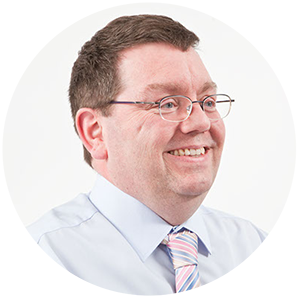Robert Stanley, a Business Executive based in Bristol, describes how he woke up one morning and suddenly heard an excruciating, high pitch noise.
“Back in August 2013, I was due to go to London on business, when that morning, I woke up to the sound of a constant high pitched tone. It sounded like it was in the house somewhere or outside the property. I had a shower and breakfast but I still had this tone in my head which I can only describe as at a high frequency pitch. It was like the sound when the TV used to go off at midnight.
As the day went on the tone in my head started to get louder. I thought I was actually hearing the noise, I didn’t realise it was being generated in my head. Over the next few days it then got worse and plateaued out. It was very loud and the frequency was very high. I thought I must have a head cold and thought I could take some paracetamol and it would go away. It was like having an excruciating headache and I was finding it extremely difficult to function. It happened so suddenly, there didn’t seem to be anything that I had done to trigger it.
“The GP said that I would just have to live with it.”
I made an appointment with my GP who explained that it could be tinnitus and suggested I make an appointment with an ENT Consultant and that I would probably have an MRI scan on my head. I had the luxury of private medical insurance so booked an appointment right away. The Consultant examined inside my ears and told me that for my age they were in very good condition. The outcome of his physical examination and the MRI scan was that there were no apparent physical causes and so the conclusion was that I had tinnitus. Knowing that it was tinnitus was sort of a relief, as I knew what was going on in my head. I was then referred back to my GP who said that it was a chronic condition and there is no known cure and so I would have to get used to living with it.
I spent some time exploring tinnitus further and found out that it was quite a common, chronic condition that a lot of people suffer from. I decided to carry on my own investigation and at this point the tinnitus had stabilised but it seemed I was getting it 24 hours a day, 7 days a week. It wasn’t getting any better or worse.
For the next several weeks it started to affect my quality of life and my ability to focus and concentrate for long periods of time, specifically in relation to work. It seemed I had constant headaches every day. If I was at home I would have the TV or radio on to try to mask the tinnitus and I didn’t put myself in a situation where it was quiet.
“I visited The Tinnitus Clinic’s website and found a scientific and proven approach.”
However, I soon realised I couldn’t live for the rest of my life in these circumstances. I did a lot of research on the internet and came across a report which The Tinnitus Clinic had submitted and I thought it looked really interesting. I started to read it and it contained some useful facts and information. I then visited The Tinnitus Clinic’s website and found a scientific and proven approach with statistics and records and thought that it was the best option I had seen so far.
I made an appointment with The Tinnitus Clinic in Cheltenham and met Kathryn. Kathryn was very professional, polite, knowledgeable, understanding and somebody that I felt I could work with.
I had an assessment that concluded that due to loss of hearing at a specific frequency this could have caused the tinnitus. I signed up for the Acoustic Neuromodulation programme right there and then, and in January 2014 I had my first fitting appointment.”
Kathryn describes the diagnosis and the results from the therapy, “Robert presented with high-pitched, tonal tinnitus which appeared to be dominant on the left side. When I first met him, he had had his tinnitus for around five months. It fluctuated in intensity but generally was worse in the morning.
Robert was unaware of any difficulties in hearing but when he had his hearing tested in clinic, there was a high frequency hearing loss present on both sides. We carried out a tinnitus pitch match and generated a prescription to confirm his suitability for Acoustic Neuromodulation. Robert was keen to proceed so we went ahead with the programme.”
“The device was so small and simply clipped onto my belt, I wasn’t really aware that I was wearing it!”
Robert continues, “I started to wear the device at the recommended 4 – 6 hours a day and it became apparent how easy and simple it was to wear. It was so small and simply clipped onto my belt, I wasn’t really aware that I was wearing it! I would wear the device in 3 periods, 2 hours in the morning, 2 hours in the afternoon and 2 in the evening. I got in a routine and found it easier to cope with the device wearing it in stages.”
Kathryn explains, “Robert responded really quickly to the therapy. Within a small number of weeks of using the device, he noticed his tinnitus was becoming less troublesome and this continued throughout the programme. As the weeks progressed, it reduced in volume. There was also a marked, steady reduction in pitch, from 8000 Hz at the fitting to nearer 3000 Hz at his last follow-up. It also became more atonal in nature. We also measured his progress using a series of questionnaires and these also clearly indicated a reduction in the intrusiveness of the tinnitus and improvement in his quality of life.”
“I started to notice a difference in the volume and frequency very quickly”, explained Robert. “My understanding is that my tinnitus became atonal, which meant that the tinnitus in my head was quieter in volume but the tone became “wobbly” instead of the solid tone that it was before. Instead of the horrible high-pitched screech it became a quieter noise and not as intense.
I stopped wearing the device in November 2014 because I got to a stage where I plateaued out at a lower frequency. When I get up in the morning the tinnitus is in the background and I am rarely aware of it during the day. Before, I was constantly aware of the tinnitus.
At this point, today, I would say my tinnitus is 80% better than it was and as I have a very demanding, challenging job, the therapy programme has given me the ability to continue to deliver a high performance.
I would have no hesitation recommending people to have a tinnitus assessment at the Clinic and I believe that the Acoustic Neuromodulation programme has significantly improved my tinnitus both in frequency and volume. It has given me my quality of life back.”
“When I get up in the morning the tinnitus is in the background and I am rarely aware of it during the day. Before, I was constantly aware of the tinnitus.”




